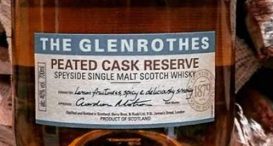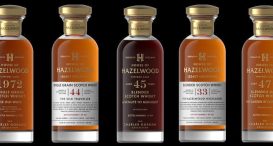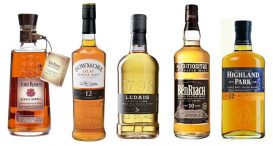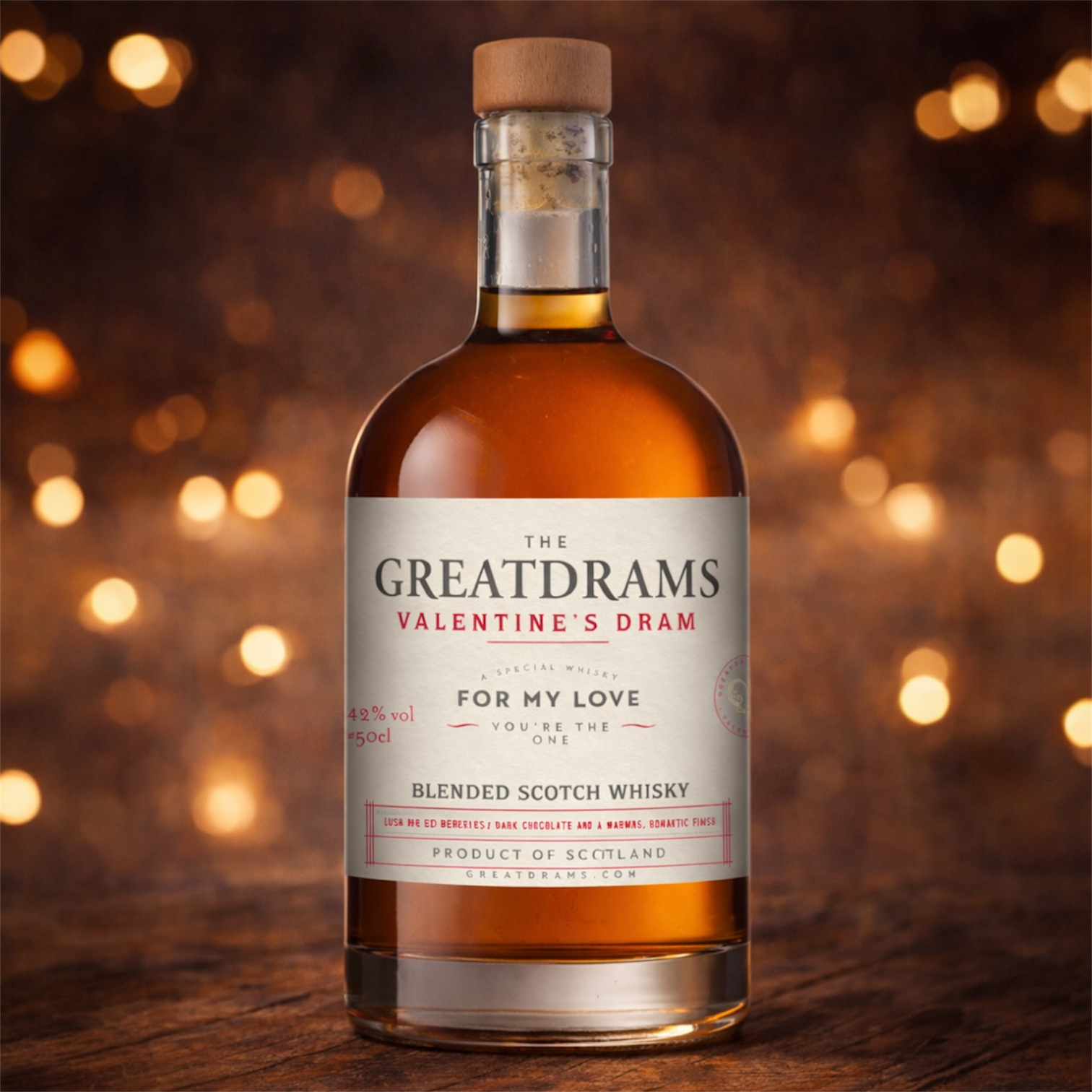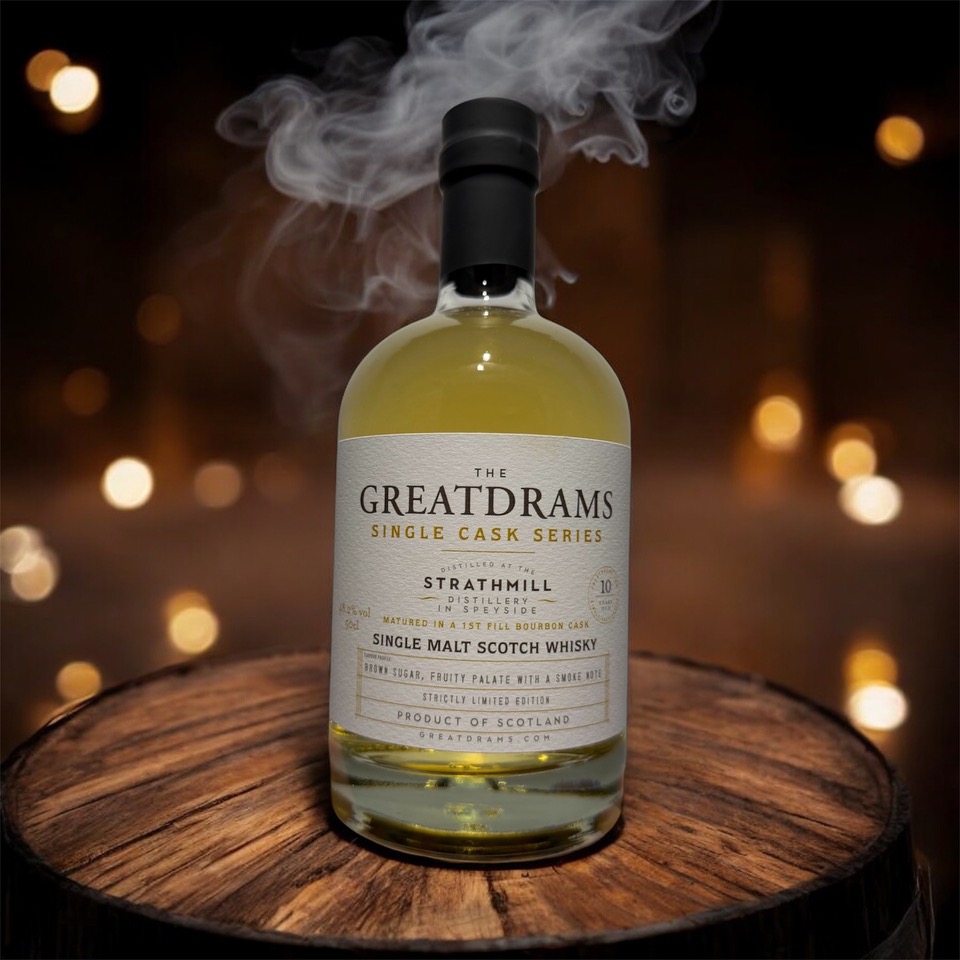From Field to Fermentation – How Whisky is Made
‘O thou, my muse! guid auld Scotch drink! Whether thro’ wimplin worms thou jink, Or, richly brown, ream owre the brink, In glorious faem, Inspire me, till I lisp an’ wink, To sing thy name!’
A world without whisky would be an incredibly dull one. In fact, for many, a world without whisky wouldn’t be worth living. If you think that sounds a tad dramatic then away with ye, you’ve come to the wrong blog as we’re hugely passionate about whisky here.
There’s just something magical about reaching for a bottle of your favourite whisky, grabbing your favourite tumbler, adding ice cold whisky stones, and pouring yourself a wee dram as you unwind and forget your troubles.
As wonderful as whisky tastes, when you understand just how much hard work goes into creating each delicious batch, whether it’s Scotch, Bourbon, Rye, Irish, or anything else, you really appreciate just how magical the drink is.
While we generally don’t pay much attention to how whisky is made when we just pop into our local supermarket and grab a bottle off the shelf, take it from us, it’s a long, arduous, stressful, and ultimately rewarding process required for making a high quality whisky.
Here’s a look at how the whiskies we know and love, come to be.
What is whisky made of?
Of course, different whiskies use different ingredients, and of course, different whiskies have vastly different aromas, appearances, flavours, and finishes.
So then, you’d be forgiven for assuming that whisky is a very complex beverage consisting of dozens and dozens of ingredients meticulously chosen from around the globe in order to create the best tipple possible. With all due respect however, if you did assume that, you’d be painfully wrong.
To make whisky, you don’t need 11 secret herbs and spices, you don’t need artificial colours, or preservatives with more E numbers than people used to consume in the 1970s and you certainly don’t need any fancy flavourings, synthetic or otherwise. In fact, you only need 3 ingredients. No, that’s not a typo, we really did say 3 ingredients. Want to know what they are? Of course you do, that’s why you’re here. Okay, here they are, but don’t tell anybody. The 3 ingredients used to make whisky/whiskey are:
- Water
- Grain
- Yeast
Yep, that’s it, just those 3 ingredients form the base of all of your favourite whiskies from all over the globe. Whether it’s a delicious Scotch distilled in the heart of the Scottish Highlands, or a Bourbon made in Kentucky, those 3 ingredients form the base of whisky.
Here’s a look at the key ingredients in more detail.
Grains
Of course, different grains are used to make different types of whisky/whiskey. Here in the UK for example, most whiskies are made from malted barley. In the USA however, Bourbon is made primarily from corn, though a little malted barley is required no matter what, as this helps to facilitate the fermentation process.
Barley, rye, corn, maize, and wheat are the five most common grains used to produce whisky/whiskey. The type of grain used to produce the whisky/whiskey can have a huge effect in terms of the overall look, aroma, mouthfeel, taste, and finish of the tipple in question.
In order for a Scotch to be referred to as such, it must be made from malted barley and made in Scotland. This is why some people call certain types of Scotch whisky ‘malt’ or ‘malt whisky’.
In America, where Bourbon is popular, the grain of choice is primarily corn. In order for a Bourbon to be referred to as such, it must consist of at least 51% corn. The remaining 49% can be made up of any other grain, or even a combination.
Before Bourbon whiskey became the tipple of choice in the States, rye whiskey was the most popular. As whiskey production made its way South however, the southern climate proved too warm and humid for rye, but perfect for corn. Rye whiskey is making a comeback however, and is perhaps the American answer to Scotch. In order for a rye to be referred to as such, it must consist of at least 51% rye.
Water
Water is essential for all life here on earth, and considering our planet is composed of more than 70% water, you can see just how important it is.
When it comes to whisky production however, water is absolutely, positively, 100%, undoubtedly, essential for producing a quality product. Heck, the word ‘whisky’ comes from the Gaelic word ‘Uisce beatha’ which literally means ‘Water of Life’.
So, you may be thinking that, because you can get cereal grains from the local supermarket, along with instant yeasts, all you need to do is combine the ingredients together with tap water, and make yourself a cheap, homebrew whisky? Well, again, if you think that you are unfortunately mistaken.
Water is the most important ingredient used to produce whisky/whiskey, and nope, tap water or even filtered tap water, just isn’t going to cut it. In order to produce a premium quality whisky, you need a natural, mineral rich water source, ideally from a fresh spring or river.
Molecules which determine a whisky’s flavour, as well as alcohol molecules, stick together and pair with water. The minerals in the water really emphasise the taste and characteristics of a whisky. This is why adding just a few tiny drops of mineral water to a glass of Scotch, can dramatically alter the taste and finish of the whisky.
Most distilleries located in the rugged Scottish Highlands are located alongside a river, or in close proximity to a spring, which is where they source their water from. Using tap water, which contains chlorine and has been treated with other ingredients, would simply not produce a whisky that even tasted half-decent. This is part of the reason why distilling your own whisky is considered to be an art form.
Yeast
And finally, the last key ingredient used in whisky production is the same ingredient used for baking bread – yeast.
If you’ve ever wondered how whisky is able to give you that warm and fuzzy feeling, and help you convince yourself that you’re the world’s best singer and/or dancer, you’ve alcohol to thank for that. Without yeast, there can be no alcohol, so of course, yeast is very important and is of course a key ingredient.
Yeast helps to convert starches into sugar which then ferments into alcohol. Not only that, but it can create different tastes and profiles as well. Whereas some distilleries will use different types of yeast, most will use the same strain of yeast to ensure the product tastes the same and retains its characteristics.
Brewer’s yeast or distillery’s yeast are used. You can’t just go ahead and use bread yeast because the yeast won’t be able ferment anywhere near close enough to the ABV needed to produce a whisky.
So, how is whisky made?
Put very simply, the whisky production process can be split into 5 unique steps using the ingredients listed above, and a few extras later on.
Here’s a look at the five steps needed to produce whisky.
Malting the grains
First and foremost, in order for a whisky to be properly produced it needs malted grains.
Using a device known as a ‘gristmill’ all grains, other than barley are ground up into a fine meal that resembles a powder. The meal is then combined with water before being heated to break down cell walls which contain the starch.
In order for barley to be malted however, things are a little different. The barley is soaked in water until it is completely saturated. The barley grains are then spread out onto the floor and are sprinkled with water for roughly 3 weeks, until the grains begin to sprout.
The floor now resembles a lawn, or a green carpet, though this is important as germination creates an important enzyme called amylase. This enzyme converts barley into sugars.
Up next the sprouted barley is kiln dried with hot air before being ground down into a fine powder just like all of the other grains.
Mashing
Nope, it’s not the same mashing you do to your tatties and neeps on Burns Night to accompany your haggis, but it is still a very important process in whisky production.
Mashing is basically where you combine the cooked grain with the malted barley in warm, not boiling, water, almost like a giant bowl of porridge. This is where that wonderful amylase enzyme really shines and begins converting the starches into sugars that will feed the yeast.
This gentle heating process lasts several hours and once finished, you will be rewarded with a very thick, rich, and sugary liquid that distillers call ‘the mash.’
Fermentation
Things don’t stop there however, as there is still a long way to go before you’re rewarded with the golden amber nectar we know as whisky.
When the mash has cooled down, it is then poured into large tanks known as ‘fermentation vessels’ where it begins fermenting. This is the exciting part because this is where the thick, sugary, gloopy mash starts to more closely resemble whisky.
In the USA, these vessels are open, whereas in Scotland they are closed. Now, the distiller’s yeast of choice is added to the mash where they begin stuffing their fat little faces (do yeast have faces? Probably not, though they are technically living) and consume the sugars and turn them into alcohol.
The fermentation process is usually quickly and only lasts around 48 hours, though some distilleries let the process last longer to change the finished product.
Distilling
Whereas beer is brewed, whisky is distilled. It’s here where things really start to become scientific.
Scotch is distilled in a traditional copper pot still. Here, steam enters the still from the bottom, whereas the liquid enters from the top. The liquid is distilled as it gradually drips through plates, with the alcohol being condensed back into liquid form.
As the vapour rises up the still’s long and narrow neck, it begins to cool down. As the vapour cools, it condenses and is converted back into liquid form. This is now whisky in its infancy state. In America, Tennessee whiskey would be filtered through charcoal made from burnt sugar maple pallets before it begins aging. This helps make the whisky much smoother than Scotch.
You could technically drink it, but it would be revolting. The real magic happens next, during the aging process.
Aging
Finally, the last step of the whisky production process is aging.
Water plays a key role here as it is added to the liquid to dilute down the alcohol content of around 50 – 60% in the US, or 65% or more for Scotch.
The whisky is then transferred into barrels, usually white oak barrels, where they will age for several years. Some will be ready in 2 years, whereas others will age for 10, 12, 15, 20, or more years.
Every year that the whisky ages however, it will naturally lose around 2% of the spirit through evaporation. This is known as the ‘Angel’s Share’. This is why older whiskies are more complex, rarer, and cost more.
Different distillers will use different aging lengths, casks, and processes to produce vastly different whiskies. Often, ex-bourbon or ex-sherry casks are used which help the whisky inside to take on the characteristics of the liquid that was stored in the barrels before them.
After the aging process, the whisky emerges from its slumber several years older and is bottled up, before being sold to the general public.
And that, our whisky-loving chums, is the basic story of how whisky is made.
If you’d like to learn more about Scotch whisky, or any other types of whisky/whiskey for that matter, make sure you check out GreatDrams.com.
Here, you’ll find all manner of useful resources relating to all things whisky, as well as a selection of the rarest, most delicious whiskies you could ever wish for, all for very reasonable prices.



